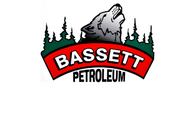
COVID has affected supply chains in Canada and around the world. As a result, transportation costs have risen, and more businesses are taking a second look at their supply chain.
Your supply chain is vital because if you don't get your supplies to you in a timely manner, it can hurt your bottom line. For example, if you can't get fuel to keep your machines running, your production will stop, and your business will lose money.
Transporting liquids comes with its own challenges for businesses. Bulk liquid transportation is one solution businesses use to meet fuel needs. Read on to learn more about bulk liquid transportation and how it works.
What Is Bulk Liquid Transportation?
Bulk liquid transportation is the transportation of large quantities of liquid from one location to another using commercial vehicles. Petroleum, chemicals, and lubricants are all types of bulk liquid companies transport to keep their business operating.
Bulk liquid transportation is more challenging than dry or solid materials. It needs specialized equipment and can be more dangerous.
Drivers have to be mindful of how they drive and road conditions. Braking too hard or a wrong turn can topple the truck and cause a loss of the shipment.
Some liquids like fuel are flammable, making them dangerous, so they are subject to regulations.
Canada's Transportation of Dangerous Good Regulations establishes safety protocols and regulations for the shipping of hazardous materials. When transporting dangerous goods like fuel, they need to be in a container that meets specifications. Containers must be properly marked and moved by someone with proper training to handle dangerous goods.
Bulk Liquid Transportation Process
The methods of transporting liquids typically don't put the bulk liquid in a secondary container to transport it before shipping. Instead, the bulk liquid is directly into the container that will transport it.
Bulk liquid trailers are the most common way to transport bulk liquids. Bulk liquid trailers are large cylindrical containers made of metal like stainless steel. Containers come insulated or uninsulated or have separate chambers to transport more than one type of liquid.
Before transporting any liquid, the container they will be stored in will be inspected for leaks. Leaks cause a loss of product which hurts revenue. Once a trailer is determined to be safe and secure, the liquid is pumped into the trailer using hoses.
Finding a Bulk Liquid Distributor
When choosing a distributor, you will want to consider things like price, experience, and location.
Bulk liquid transportation costs will add to your business's bottom line. You'll want to factor in the costs to determine if a distributor's prices match your budget.
Location is another essential because it will impact how long it takes your shipment to get to you. You'll want a distributor who can get you fuel on time.
You'll want to find a company with experience so you know they will reliably and safely get you your bulk liquids when you need them. They know the area where they operate and can be better prepared for unexpected supply chain interruptions. Bassett Petroleum Distributors Ltd has been providing transportation services to Northern and Western Canada for over thirty years.
Get Bulk Liquid Delivered
Bulk liquid transportation is an efficient way to get liquids delivered on time. As a result, you can keep your business up and running to avoid missing out on revenue.
Are you in need of propane, gasoline, fuel, diesel for your business? Let us keep your tanks full. Contact Bassett Petroleum Distributors Ltd to get a quote today.

Comments